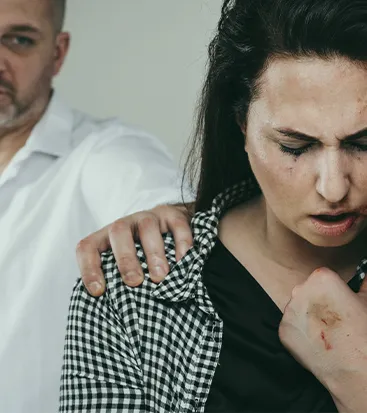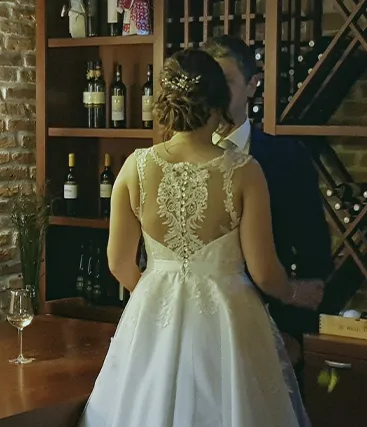MON – FRI (8am - 6pm)
The Violence Against Women Act (VAWA) was created in 1994 to protect victims of domestic abuse who are related to U.S. citizens or lawful permanent residents (LPRs). Through VAWA, individuals can apply for immigration benefits without the involvement of their abusive family member.
VAWA protections extend to spouses, children, and parents who have suffered abuse. It allows them to file a petition to obtain legal status. VAWA applies to both men and women and is not limited to physical abuse. For personalized legal advice, contact Serving Immigrants.


VAWA eligibility covers several categories of relationships. The abused spouse or child of a U.S. citizen or LPR can file a VAWA self-petition. Parents abused by their U.S. citizen children are also eligible to apply. To discover more of VAWA self-petition, click here.
Even if the abuser has lost their immigration status due to domestic violence or has passed away, the survivor may still be eligible to file under VAWA, provided it is done within two years of the change.
Additionally, VAWA eligibility allows self-petitioners to include their children as derivative beneficiaries, meaning that their children can also benefit from the same protections and potential immigration benefits. This includes children who are unmarried and under 21 years old at the time of filing the petition.
The VAWA criteria cover more types of abuse than just physical. Below, you can find more information about these types and the documentation required.
VAWA eligibility extends its protection to survivors of physical abuse, which can include acts such as hitting, slapping, kicking, or any other form of bodily harm. Importantly, the abuse does not need to be continuous; a single act of physical harm can qualify a victim for protection under VAWA eligibility.
VAWA eligibility also covers emotional and psychological abuse, which can be more challenging to document but is equally destructive. Abusers often use intimidation, threats, isolation, or constant criticism to manipulate and control their victims. The law recognizes that emotional and psychological harm can be as damaging as physical abuse and offers the same protections.
Psychological abuse might involve threats of deportation, or restricting the victim's movements and interactions. Victims may not always have physical evidence of this abuse, but they can submit affidavits from friends, family members, or professionals.
Financial control is a form of abuse recognized under VAWA eligibility. It occurs when the abuser uses money, resources, or access to finances as a way to dominate and control the victim.
Common examples of financial control include:
To qualify under VAWA, victims must provide evidence of this financial abuse, such as bank statements, testimonies from friends or family, or documents showing the abuser’s control over financial matters.
Extreme cruelty is a broad form of abuse recognized under VAWA that extends beyond physical violence. It includes behaviors that deeply harm the victim emotionally, psychologically, or mentally. Extreme cruelty often involves manipulation, threats, isolation, or ongoing intimidation, making it difficult for victims to seek help or leave the abusive relationship.
Examples of extreme cruelty include:
For VAWA eligibility, extreme cruelty is treated as seriously as physical abuse. Victims must provide evidence of the cruelty, which may include affidavits from witnesses, psychological evaluations, or personal statements. This type of abuse can cause long-term psychological harm.
Common-law marriages may count for VAWA purposes if they are legally recognized in the state or country where the relationship began. Immigration officials look at the intent of the relationship, how the couple presented themselves to the community, and whether they lived as a married couple. States like Colorado, Texas, and Iowa, among others, recognize common-law marriages, making them eligible for VAWA protection.
Proving a common-law marriage requires showing documentation such as joint bank accounts, shared insurance policies, or affidavits from friends and neighbors who can testify that the couple lived as spouses. This proof is essential to establish VAWA eligibility for common-law marriages. If you’re seeking legal guidance, Serving Immigrants is here to help.
For common-law marriages, the burden of proof can be higher since there is no formal marriage certificate. Couples must provide as much evidence as possible to prove their relationship. This can include bills, photos, affidavits, and legal documents that show the couple presented themselves as married.
In cases where evidence is limited, an immigration attorney can help gather the necessary documents to build a strong case for VAWA eligibility.

Under VAWA, you have the option to include derivative beneficiaries. These beneficiaries must meet certain requirements, which are outlined below.
VAWA petitioners can include their unmarried children under 21 as derivative beneficiaries in their petition. This means that if the principal petitioner’s self-petition is approved, their children can also receive the same immigrant classification. Derivative beneficiaries must meet certain requirements, including being unmarried and under 21 years old at the time the petition is filed.
The derivative beneficiaries do not need to file their own VAWA self-petitions but must submit their own applications for green cards once the principal petitioner’s self-petition is approved.
Once the VAWA petition is approved, derivative children can apply for work authorization and eventually for lawful permanent residence. They are also protected from deportation while the case is being processed. In certain cases, children who turn 21 during the application process may still be eligible to adjust their status under the Child Status Protection Act (CSPA), which prevents them from aging out of eligibility.

Under VAWA, widows of U.S. citizens or permanent residents may be eligible to self-petition for legal status if they have experienced abuse. To qualify, the widow must demonstrate a qualifying relationship with the deceased spouse, evidence of abuse, and meet specific residency and moral character requirements.
This provision allows widows to seek protection and remain in the U.S. without relying on the abuser's support. For legal expertise, connect with Serving Immigrants today.
VAWA is not only for women. Below, we explain the types of recognized relationships that may qualify.
A key criterion for VAWA eligibility is having a qualifying relationship with an abusive U.S. citizen or LPR. If you are or were married to a U.S. citizen or LPR and have experienced abuse, you may file a self-petition. Even if you are divorced, you can still qualify, provided you file within two years of the divorce, and the divorce was related to the abuse.
It's also important to demonstrate that the marriage was entered into in good faith, not solely for immigration purposes. Evidence such as shared finances, joint tenancy, or photos of the couple together can support the claim of a bona fide marriage. If the marriage ends due to death or a divorce connected to abuse, you still have a two-year window to apply under VAWA eligibility.
Children of abusive U.S. citizens or LPRs are also eligible for protection under VAWA. If you are an unmarried child under 21 who has been abused by your parent, you can file a self-petition. The law recognizes both physical and emotional abuse, so if you've experienced extreme cruelty. In some cases, children can file up until they are 25 if the abuse was the main reason for the delay in filing.
Additionally, a parent can file on behalf of a child if that child has been abused by their U.S. citizen or LPR spouse. The law provides a layer of protection for children who may not have the means to navigate the legal process themselves, allowing their non-abusive parent to advocate for them under VAWA eligibility.
Parents of U.S. citizens who have suffered abuse by their children can also file a VAWA petition. The abusive child must be at least 21 years old for the parent to qualify. VAWA eligibility allows these parents to apply independently.
Abuse in these cases is not limited to physical violence; it can include emotional manipulation, financial control, or threats. Just like spouses and children, parents need to provide evidence of abuse and meet the other VAWA eligibility requirements, such as good moral character.
Stepchildren of U.S. citizens or LPRs who have been abused can file a self-petition under VAWA if the abusive stepparent married the child’s biological parent before the child turned 18. The abuse can be physical, emotional, or psychological, and must be well-documented to qualify.
To apply, the child must be under 21 and unmarried. In cases where the child is older than 21 but younger than 25, they may still qualify if the abuse was the primary reason for delaying their petition. USCIS will review the evidence to determine eligibility and the extent of the abuse.
Adopted children can also apply for VAWA if they were abused by their adoptive U.S. citizen or LPR parent. To qualify, the child must have been adopted before turning 16. As with other children’s petitions, the child must be unmarried and under 21 at the time of filing, with provisions available for those under 25 if the abuse prevented timely filing.
Proof of the legal adoption and evidence of the abuse are required for the application. Children who are adopted and meet these criteria are eligible for the same protections and benefits as biological children.
In some cases, children who are over 21 but under 25 can still file a VAWA petition if they can show that the abuse was the primary reason for the delay in filing. This provision recognizes the lasting impact that abuse can have on victims.
Children who file after turning 21 need to provide a detailed explanation of why they delayed filing, demonstrating that the abuse prevented them from seeking relief earlier. The law allows flexibility in these cases, understanding that abuse often creates significant barriers to immediate action. Have legal questions? Contact Serving Immigrants for reliable advice.
This FAQ section includes questions about VAWA eligibility and other related topics:
Yes. If you are divorced from your abusive U.S. citizen or LPR spouse, you can still apply for VAWA eligibility, as long as you file the petition within two years of the divorce and the divorce was related to the abuse.
Evidence required for VAWA eligibility includes:
No, a police report is not mandatory to prove abuse for VAWA eligibility. Other forms of evidence, such as affidavits from friends, family, or professionals, and personal statements, can also be used to demonstrate abuse.
Yes. VAWA petitions are confidential. USCIS does not notify the abuser about the filing, and the information provided in the petition is not shared with unauthorized individuals, ensuring the safety and privacy of the petitioner. Read more VAWA questions by clicking here.